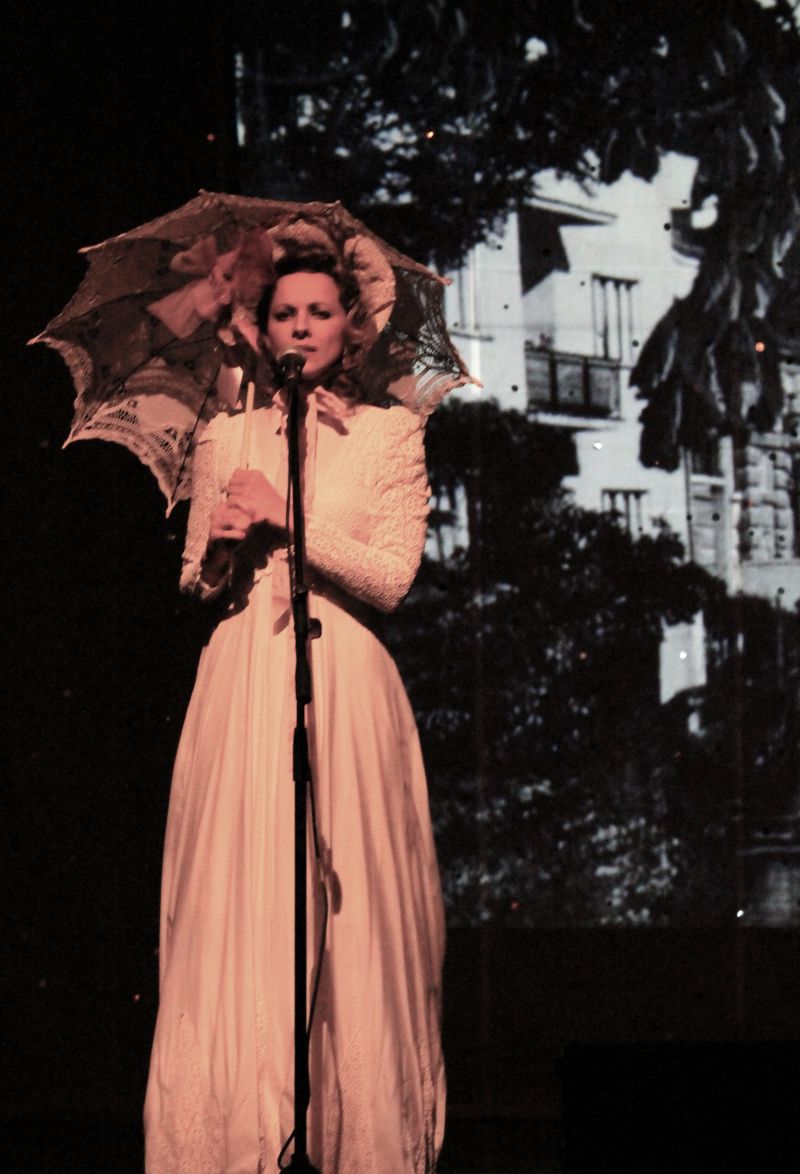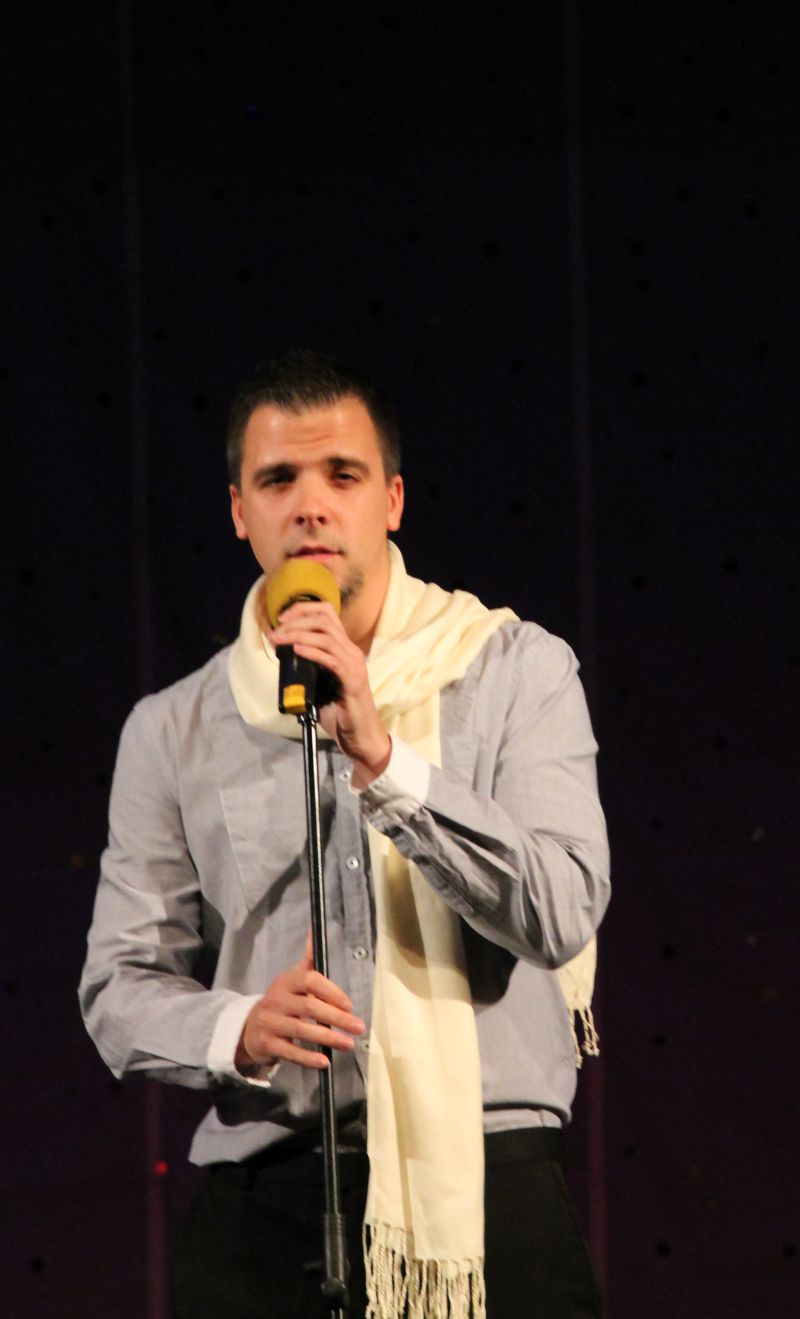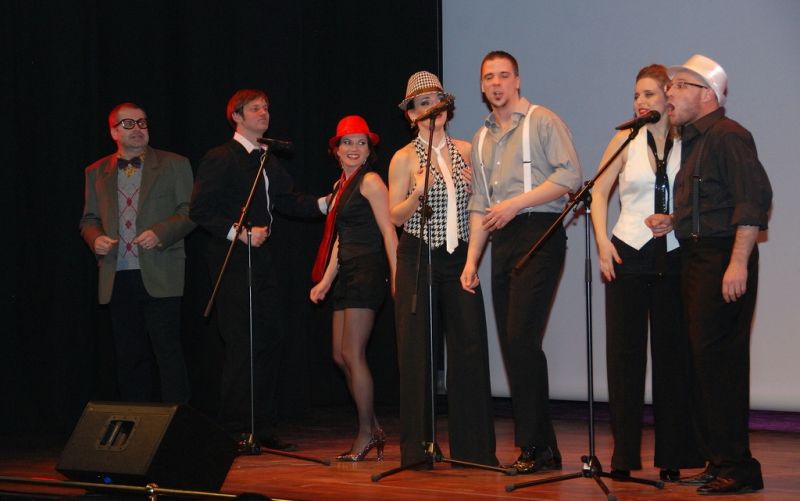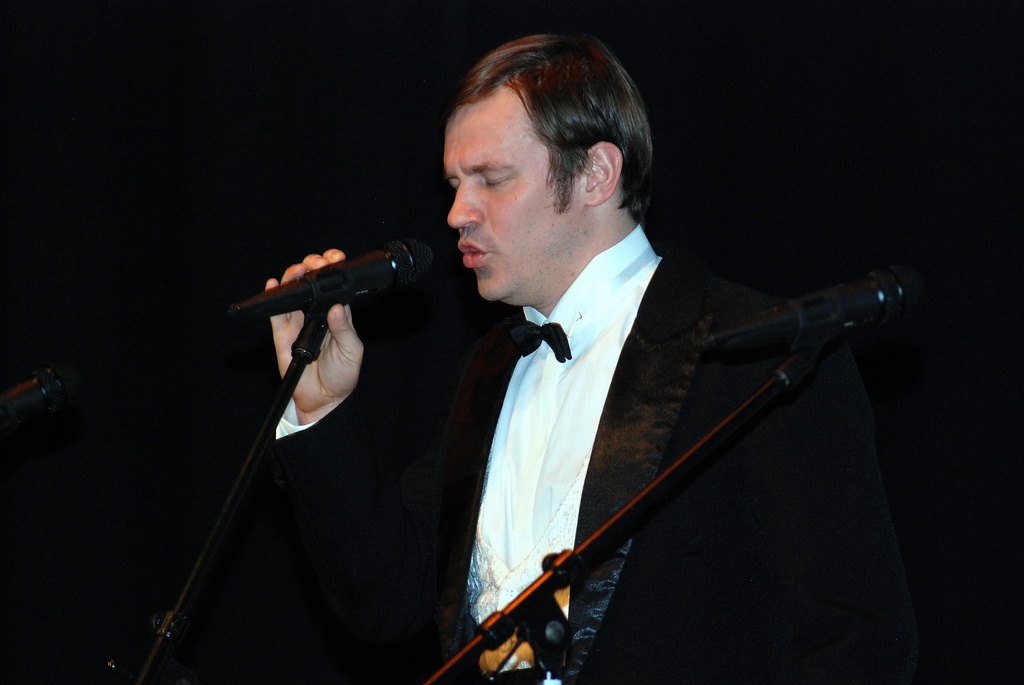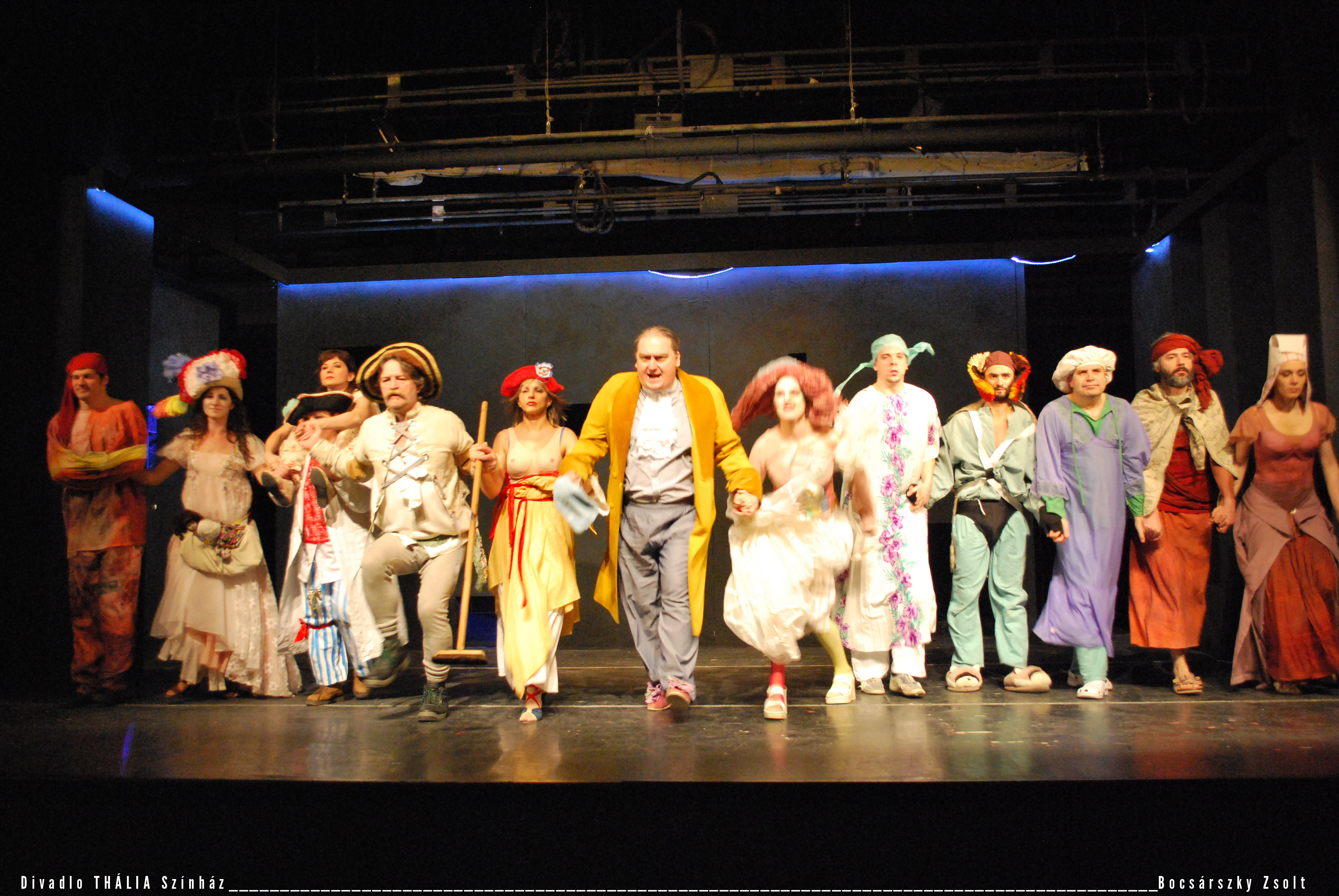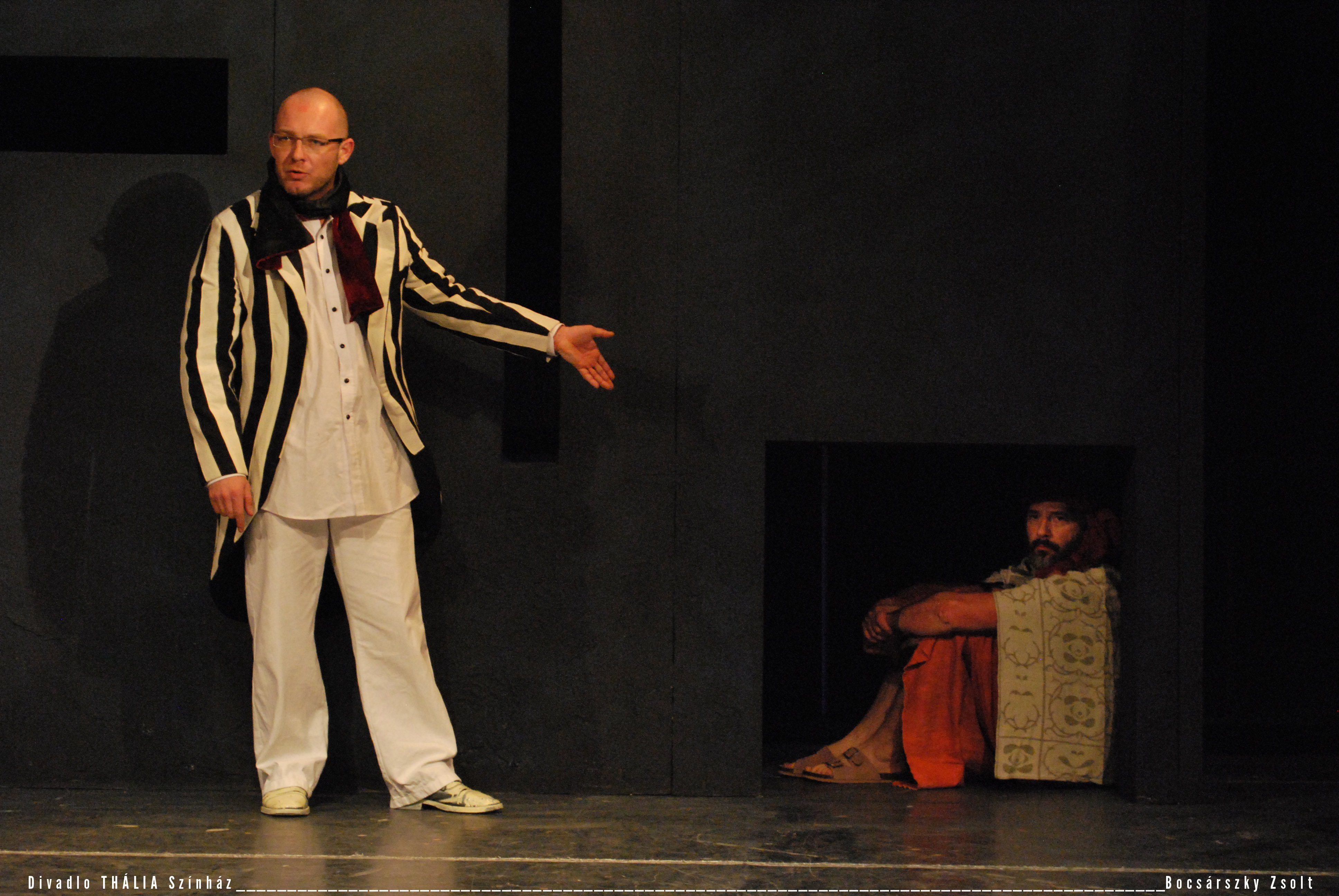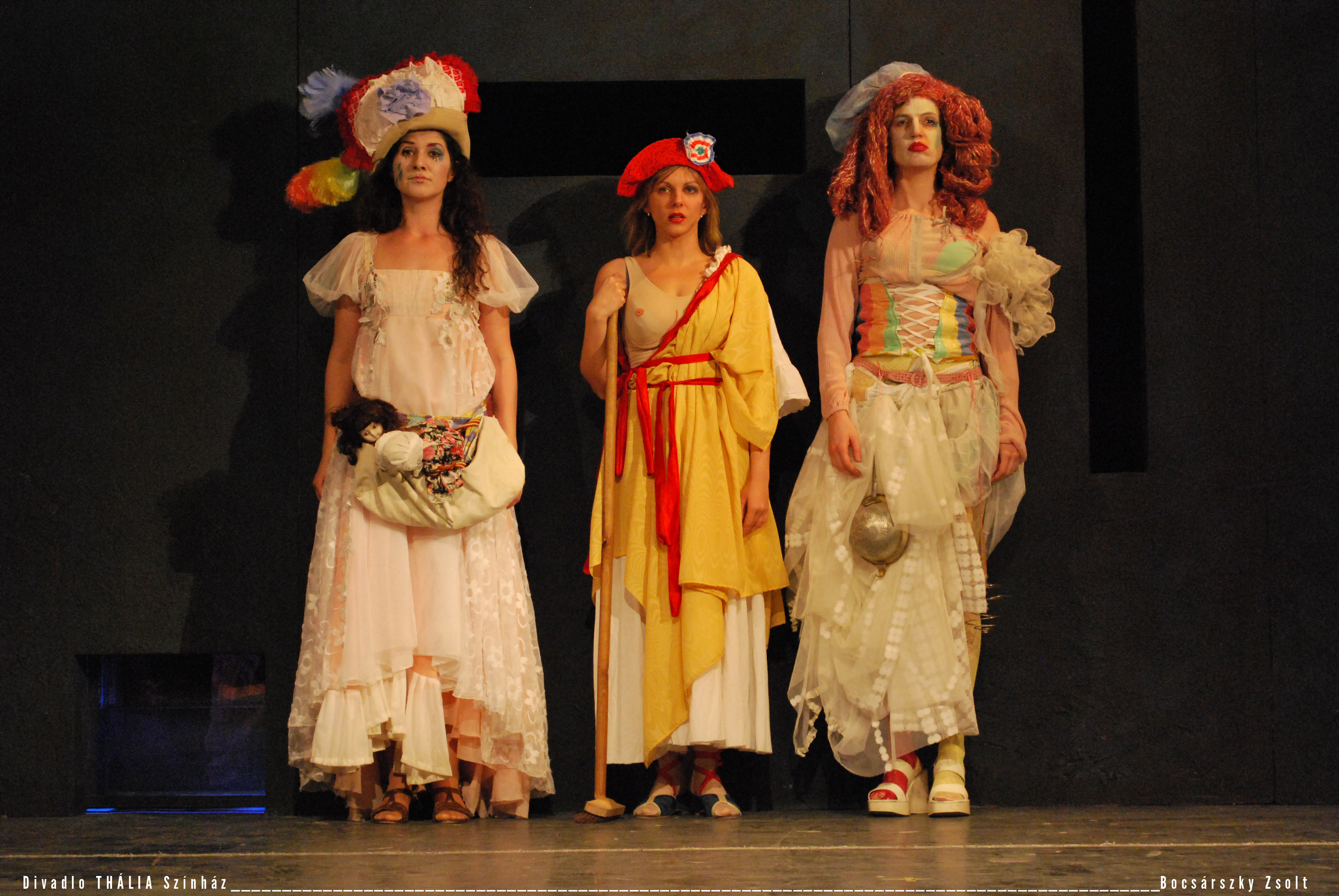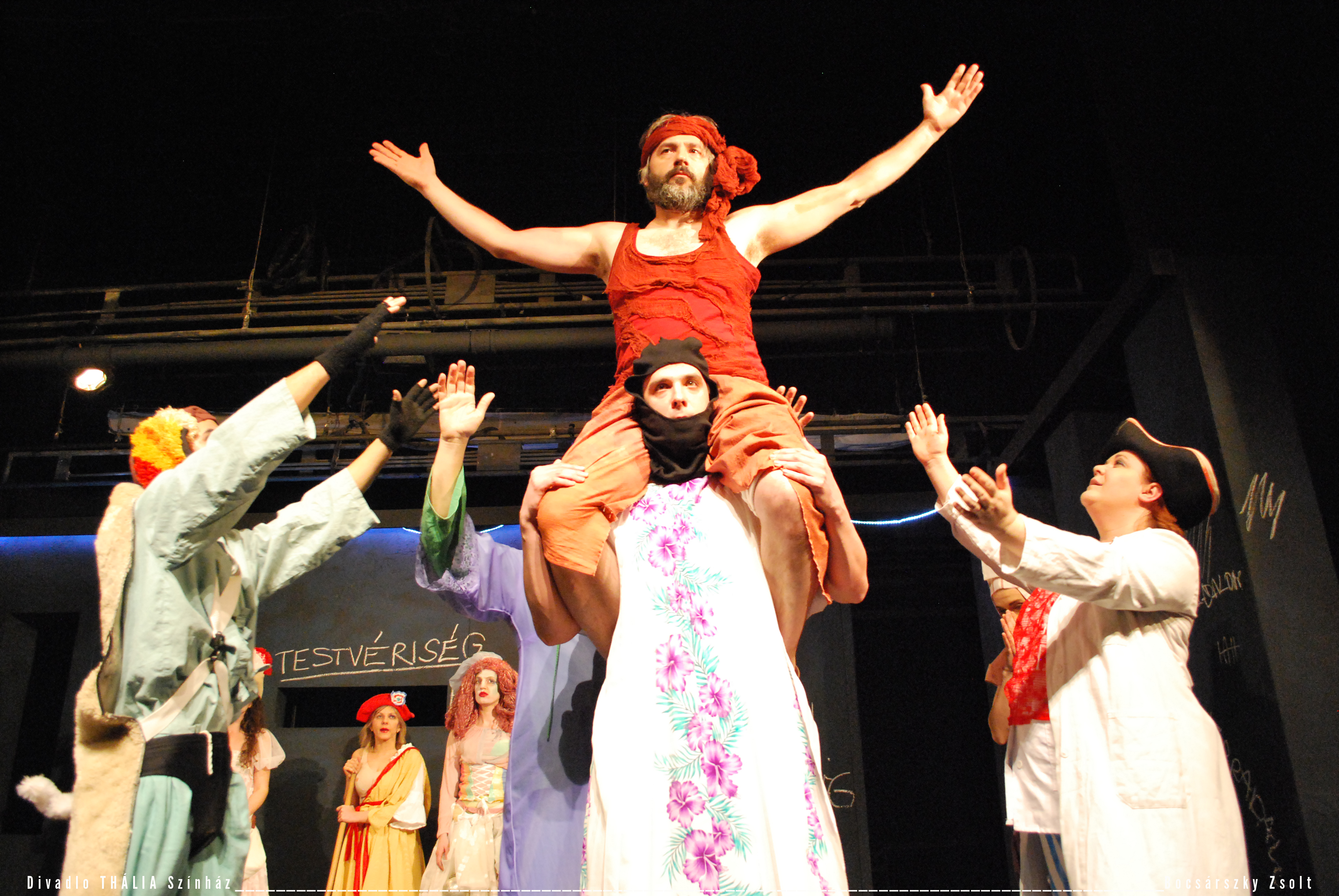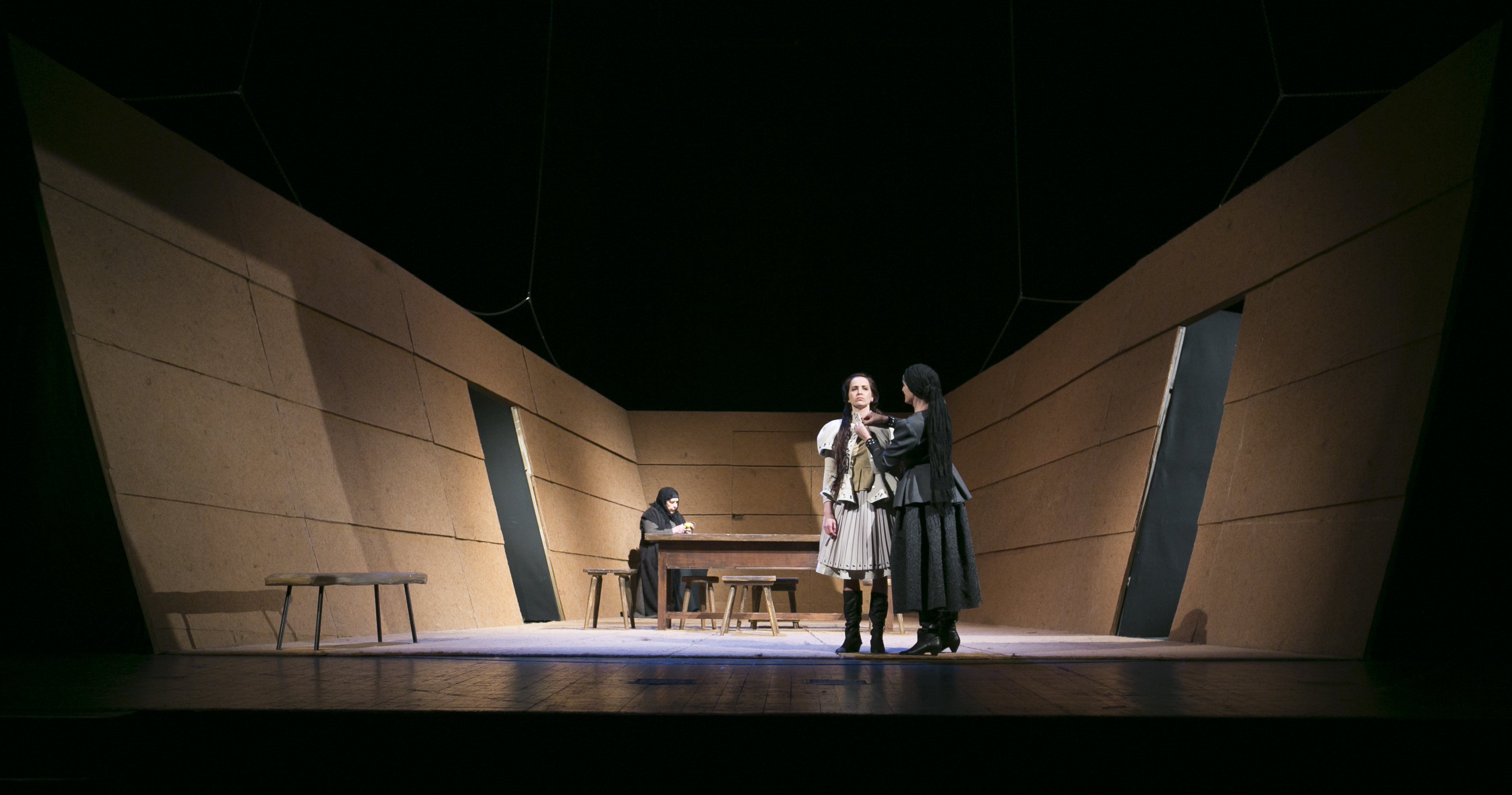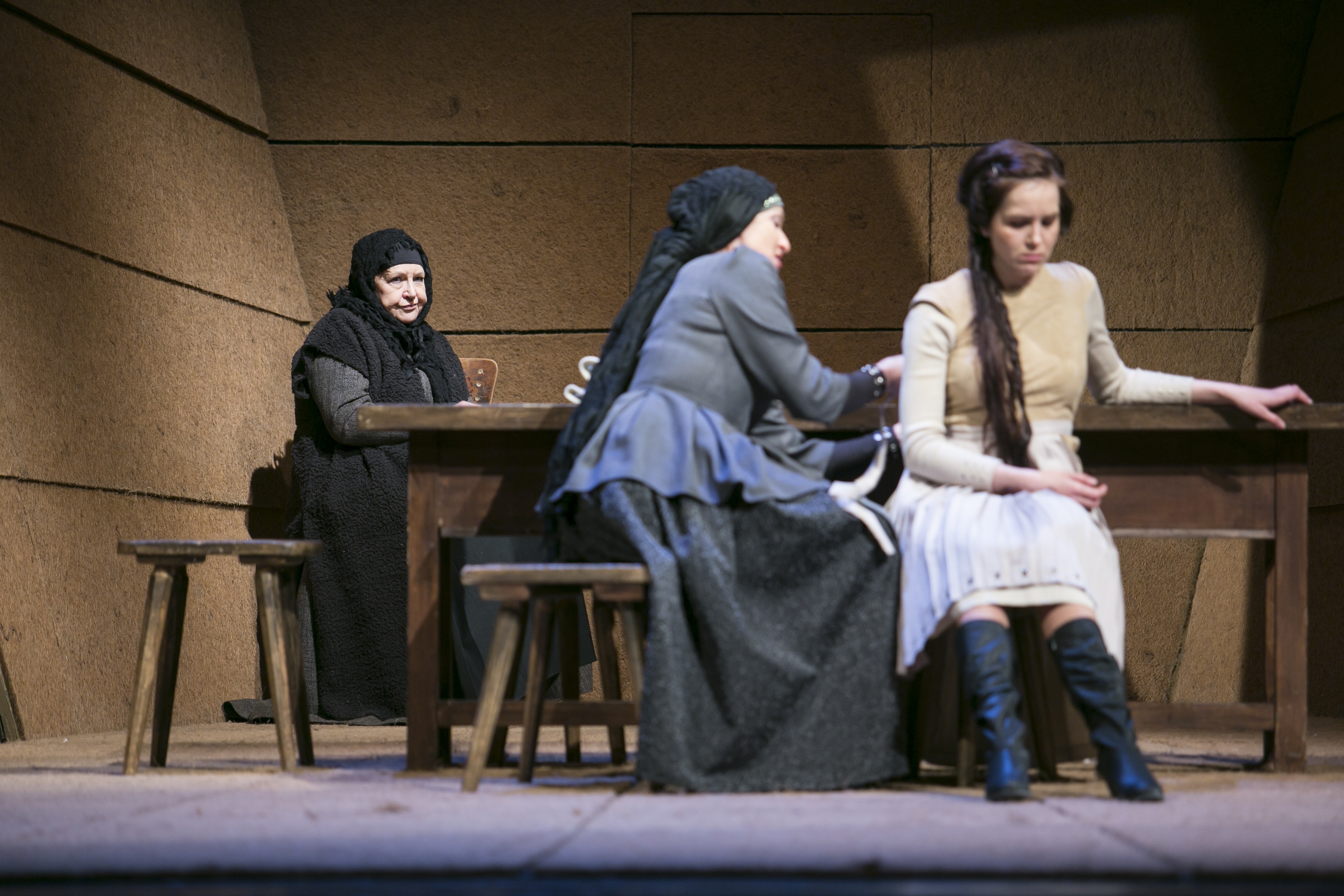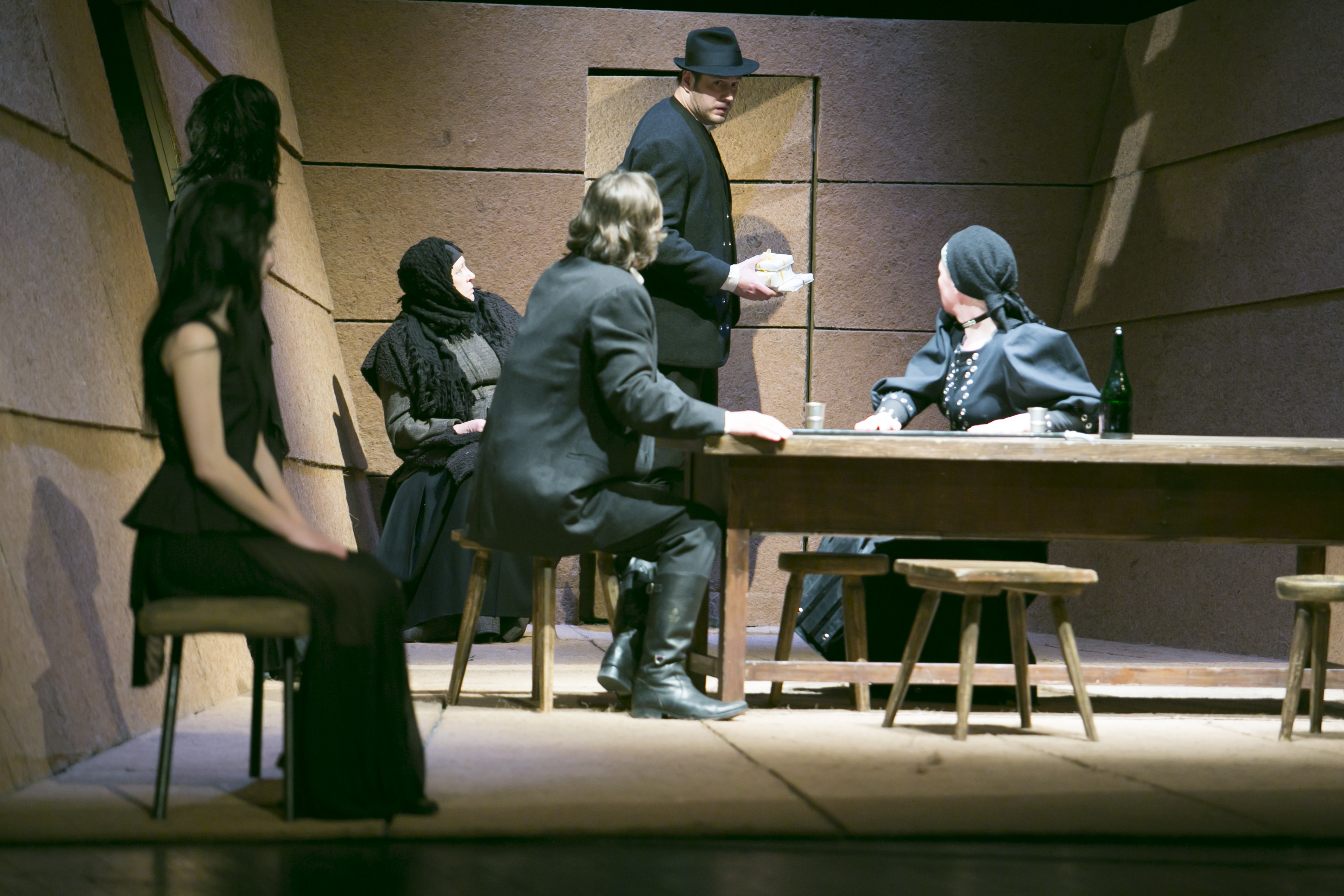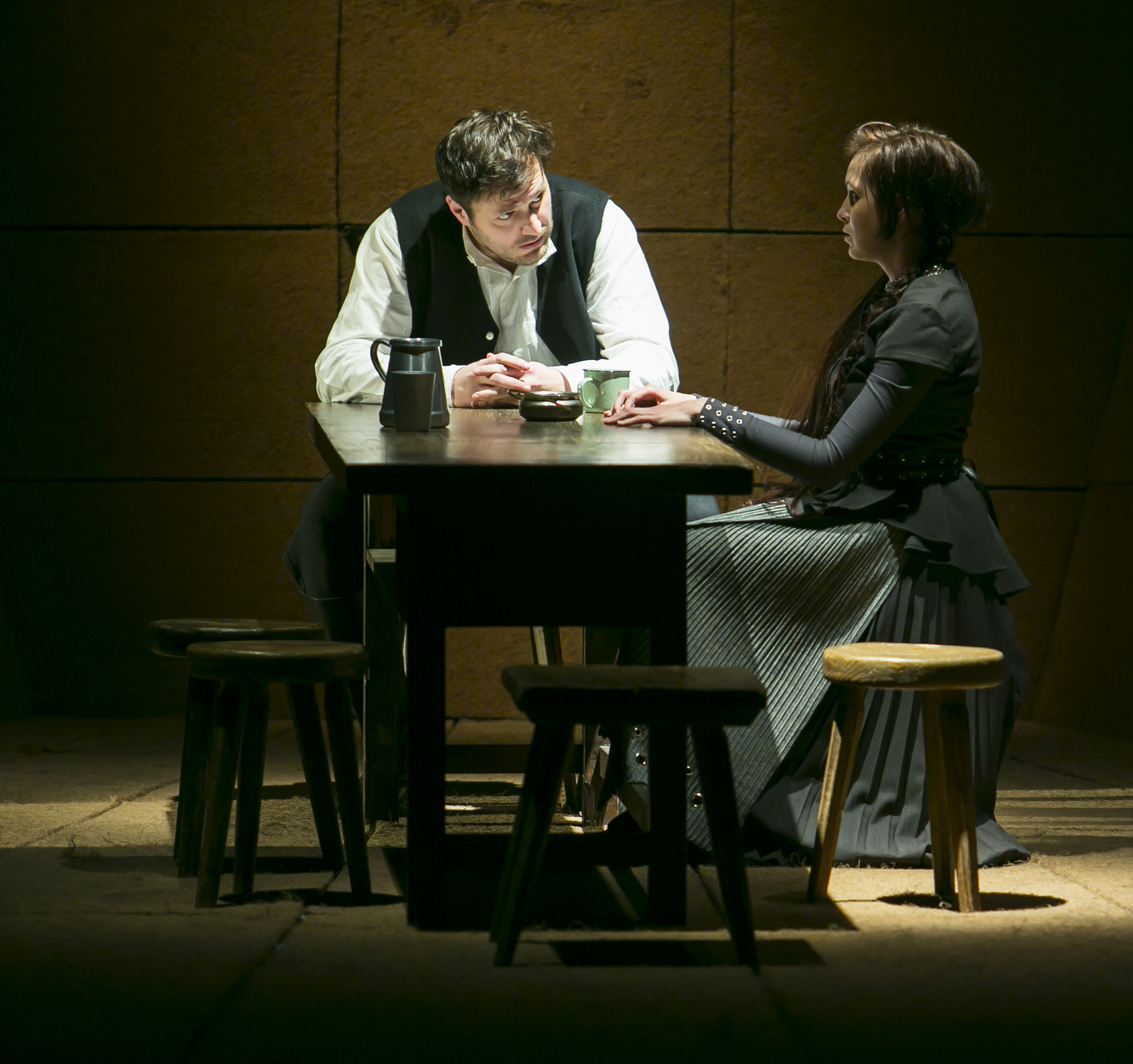After graduating from Secondary Technical School in Košice (1993), he worked as an actor in the Thália Theatre in the same city (1994, 1995–1997) and in the Jókai Theatre in Komárno (1994–1995). He has won several theatre awards for his acting achievements. In 1997, he started his studies in theatre direction at the Academy of Performing Arts in Bratislava, in Juraj Nvota’s class. In 2002, Czajlik graduated from the Academy with his production of Pablo Neruda’s play The Splendour and Death of Joaquín Murieta. As a director, he enjoyed extraordinary success with Alexander Ostrovsky’s play The Poor Bride (Academy of Performing Arts, 2000) that won several awards at international festivals (UNIVERSITAS in Pécs, ZLOMVAZ in Prague, and the International Theatre School Festival in Amsterdam). After graduation, he cooperated with a number of theatres in Slovakia (Andrej Bagar Theatre in Nitra, Jókai Theatre in Komárno, Thália Theatre in Košice, State Theatre in Košice), in Hungary (Bárka Theatre in Budapest, Stúdió K Theatre in Budapest, Jókai Theatre in Békéscsaba), in Poland and Serbia. In 2002–2006, he worked as full-time director for the Bárka Theatre in Budapest. In 2007, together with actor Tamás Gál and dramaturg Peter Pavlac, Czajlik founded the EPOPTEIA art studio where the three artists have organized independent theatre productions and workshops ever since. At present, he works as the director of the Thália Theatre in Košice where he is trying to find a new model of communication with both Hungarian and Slovak audiences.
Description of his work:
Director Czajlik’s constant trump card has been his bilingualism, which allows him to do art on Slovak as well as Hungarian stages. Since he was a student, he has paid equal attention to work in both language environments and has never eschewed international projects. The list of productions he has directed includes a broad range of classical and contemporary playwrights whose work he approaches using a modern lens, high degree of engagement and personal responsibility for the final shape of the production. Apart from that, he often deliberately introduces social and ethnic issues related to the coexistence of national minorities. His productions pose provocative questions to the members of both the minority and majority in order to critically reflect on the reality of Slovak-Hungarian relations.
In classical dramatic texts, Czajlik looks for current, topical and urgent themes and likes to highlight theatricality and sensuality. Several of his productions can be defined as theatrical poems that are full of interesting, surrealist and expressionist imagery. He likes to strengthen the lyrical element of a text – often to the disadvantage of the plot – in order to illustrate the mood, impressions and feelings of the characters. A typical feature of his directorial approach is intense work with actors, which becomes the fundamental component of every production. Czajlik aims to use his actors’ expressivity to enrich their characters with surprising, unexpected details that are meticulously built on the situations prescribed by the author. He leads his actors softly, considerately, with the intention to be introspective and with a pre-meditated stage-focused imagery. In addition to excellent presentations of modern acting, Czajlik endows his productions with a clear composition structure as well as with a tempo and rhythm that are easily accepted by the audience. Even though Czajlik’s productions often manifest pronounced interpretation and distinct stylization of reality on the stage, they are never the director’s exhibition or experiment. On the contrary, the productions respect the fundamental ideas of the dramatic text and emphasize the play’s essential themes.
In stage design, Czajlik is inclined to simplicity, variability and, most of all, functionality. He frequently uses untypical stage solutions, e.g. a highlighted perspective of a single interior space, disproportional pieces of furniture or a dominant stage design element, as if he were trying to hyperbolize some visual artefacts. Light and spatial placement allow him to vary the individual stage design elements and give them surprising meaning. However, his stage design is always exclusively functional and respectful of both the actors’ performance and the dramatic text. Director Czajlik’s productions are ambitious projects urging both the creators and audience to engage in a productive dialogue. It is because director József Czajlik considers theatre to be a place that teaches people how to make decisions and how to think and feel. His whole artistic work reflects this belief.
List of directed productions:
2000 / Academy of Performing Arts, Bratislava / Alexander Nikolayevich Ostrovsky: The Poor Bride
2001 / Jókai Theatre in Komárno / Peter Shaffer: Amadeus
2002 / Academy of Performing Arts, Bratislava / Pablo Neruda: The Splendour and Death of Joaquín Murieta
2002 / Andrej Bagar Theatre, Nitra / Mikhail Yurievich Lermontov: Masquerade
2003 / Bárka Theatre, Budapest, Hungary / Tadeusz Słobodzianek: Prophet Ilya
2004 / Bárka Theatre, Budapest, Hungary / Witold Gombrowicz: Operetta
2005 / Bárka Theatre, Budapest, Hungary / Sibylle Berg: Helga’s Life
2005 / Jókai Theatre in Komárno / Nikolai Kolyada: The Tale of the Dead Princess
2005 / Bárka Theatre, Budapest, Hungary / Friedrich Dürrenmatt: Blindness
2006 / Teatr im. Bogusławskiego, Kalisz, Poland / Matei Visniec: History of Communism Told to the Mentally Ill
2006 / Novosadsko pozorište – Újvidéki Színház, Novi Sad, Serbia / Federico García Lorca: Blood Wedding
2006 / Stúdió K Theatre, Budapest, Hungary / Sƚawomir Mrożek: 3 Nights
2007 / Stúdió K Theatre, Budapest, Hungary / Kata Gyarmati: The Nose
2008 / ASTORKA Korzo ’90 Theatre / Yevgeny Grishkovetz: Winter
2009 / Jókai Theatre in Komárno / Sophocles: Antigone
2009 / EPOPTEIA studio / team of authors: Orál Morál - Jelenetek egy színészházasságból (Oral Moral – Scenes from Actors’ Marriage)
2010 / State Theatre Košice / Witold Gombrowitz: Yvonne, Princess of Burgundy
2010 / Jókai Theatre in Békéscsaba, Hungary / Ivan Holub: Javor the Valorous
2010 / Drama Department of the Slovak National Theatre / Anton Pavlovich Chekhov: Ivanov
2011 / Slovak Chamber Theatre, Martin / Tracy Letts: August: Osage County
2012 / Thália Theatre, Košice / Bengt Ahlfors: A Theatre Comedy
2012 / Thália Theatre, Košice / Miklós Forgács: Košice, the City of Love
2013 / Thália Theatre, Košice / Peter Weiss: Marat/Sade
2013 / State Theatre Košice / Alois and Vilém Mrštík: Marisha
2013 / Thália Theatre, Košice / Peter Kárpáti: Everyman
2013 / Thália Theatre, Košice / Miklós Forgács: Everyman (TIE-project based on Péter Kárpáti: Jedermann)
2015 / Thália Theatre, Košice / István Kerékgyártó: Reverse
2015 / National Theatre in Subotica, Serbia / Dezső Kosztolányi: Anna Édes
2016 / Thália Theatre, Košice / Molière: The Misanthrope
2016 / Jókai Theatre in Komárno / Csaba Székely: Mineblindness
2017 / State Theatre Košice / Zoltán Egressy: The Accident
2017 / National Theatre in Subotica, Serbia / György Spiró: Dust
2017 / Thália Theatre, Košice / János Lackfi: What Are Hungarians Like?
Awards:
2016 / for her acting performance in the production Anna Édes, Hermina G. Edérlyi won the Sterijino pozorje Award (Serbia)
2017 / for their acting performance in the production Mineblindness, actors Tibor Fabó, Gejza Benkő and Emese Vasvári won the Prize of the Festival of Hungarian Theatres in Kisvárda (Hungary)
Videos from productions:
Ivanov, 2010
archive of the Slovak National Theatre, Bratislava
The video can be found at the following link: www.youtube.com/watch?v=FgDu6NHDyGg
August: Osage County, 2011
archive of the Slovak Chamber Theatre Martin
The video can be found at the following link: www.youtube.com/watch?v=xSsh1PU7noE
Reverse, 2015
archive of theThália Theatre, Košice
The video can be found at the following link: www.youtube.com/watch?v=McNFsedOIcA

